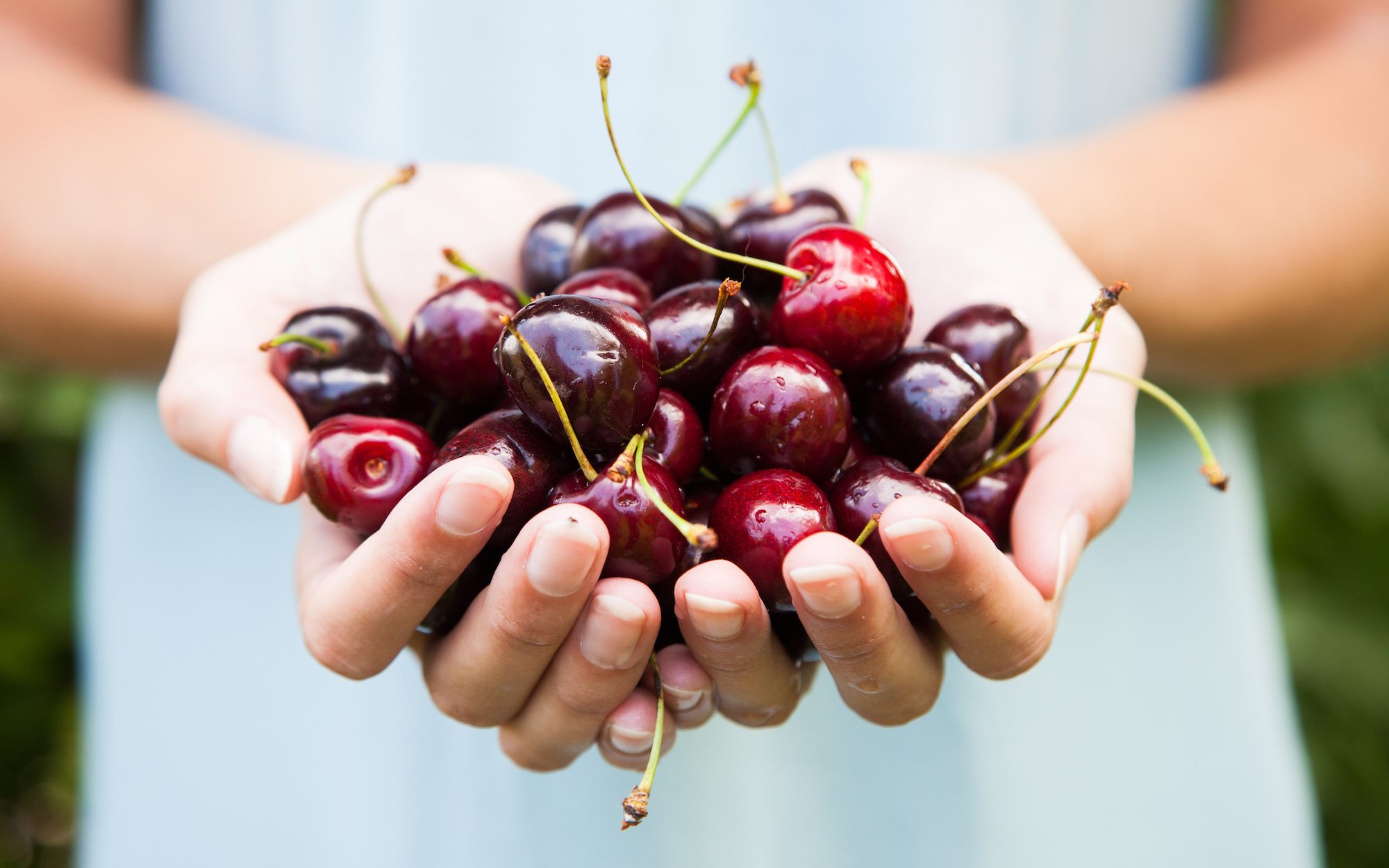
14 Foods Loaded with Vitamin C to Help You Beat Cold & Flu Season
Inside This Post: 14 vitamin rich foods boost the immune system and beat cold & flu. Vitamin C revs your body’s natural defenses & should be taken daily to fight off illness.
This post may contain affiliate links. You can see my disclosure policy here.
Foods Loaded with Vitamin C
When the months get colder, I lean on my homemade elderberry syrup and natural remedies, but one thing I’m very conscious of, is feeding my family nutritious food packed with Vitamin C to help the immune system (and they’re good for gut health too, of course!) before we come down with a cold.
I get a lot of questions about elderberry syrup, so here’s my two cents.
- Elderberry syrup should be taken when you’re exposed to someone who is sick, or you’re feeling the start of something coming on.
- It’s not meant to be taken all the time.
- I like to cycle through elderberry syrup, mushroom tea, vitamin c supplements and use vitamin c-rich foods as a dietary aid to good health.
Why Vitamin C is a Important Preventative to Cold & Flu
Vitamin C proves to be one of those essential daily vitamins we all need, and it’s helpful in boosting your immune system, improving the quality of your skin, and aiding in the healing of wounds.
These fruits and vegetables help deliver the vitamin to your diet easily, compared to vitamin c supplements.
Vitamin C revs up your body’s natural defenses to colds and flu and eating vitamin C-rich foods is a preventive way to stave off being sick.
Studies show that downing Vitamin C once you come down with a cold doesn’t appear to be helpful, but if you have a diet rich in Vitamin or take a Vitamin C supplement daily, it shortened the length of time you’re sick and reduce the severity of your symptoms.
A Cochrane Library review found vitamin C reduced the length of the common cold in adults by 8 percent. In children, colds were reduced by 14 percent.
The body is not able to make the essential vitamin C on its own, and it does not store vitamin C. That’s why it’s important to eat a diet with vitamin C-containing foods daily.
Here are some of the amazing benefits of vitamin C when consumed regularly:
- Vitamin C helps your immune system and skin health by healing wounds and forming scar tissue
- Form an important protein used to make skin, tendons, ligaments, and blood vessels and repair & maintain cartilage, bones, and teeth
- Aid in the absorption of iron
Vitamin C is one of many antioxidants that block damage caused by free radicals. Free radicals are made when your body breaks down food or when you are exposed to chemicals, tobacco smoke, radiation and other toxins that harm your body.
- The buildup of free radicals over time is largely responsible for the aging process.
- Free radicals play a role in cancer, heart disease, and other conditions.
14 Vitamin C-Rich Foods to Add to Your Diet
Here are 14 fruits and vegetables packed with Vitamin C you can add to your daily diet.
The Mayo Clinic shows that vitamin C is involved in collagen production in bones, blood vessels, cartilage, and muscle.
It should be noted that raw vegetables that have not been stored for extended periods of time, or have been heated, will have more vitamin potency that those that have. Go ahead and eat your veggies raw for the win!
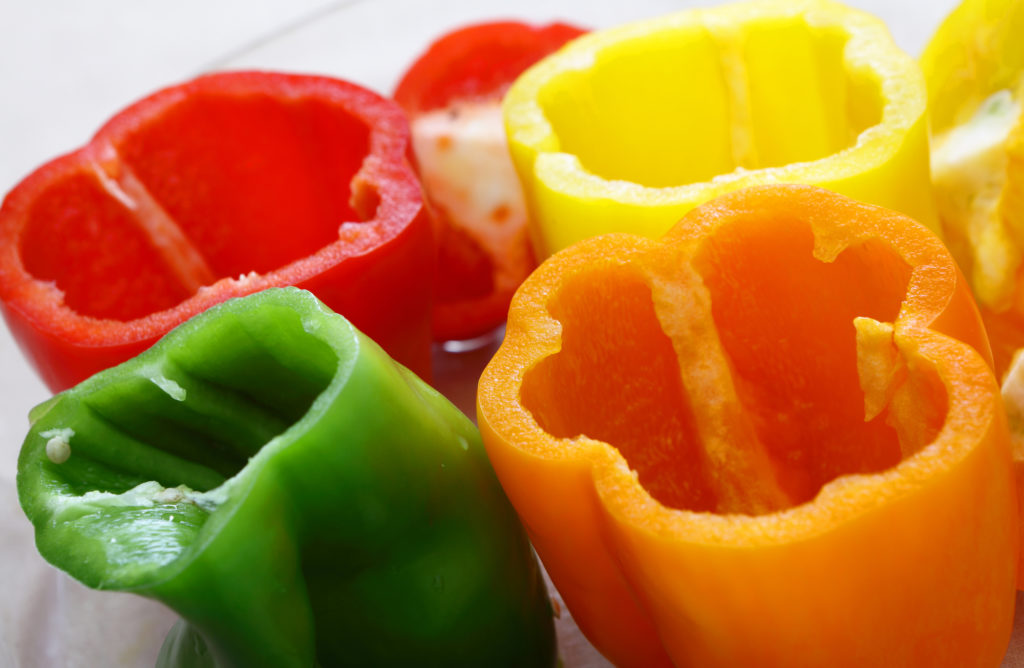
1. Bell Peppers
Bell peppers of any color are an excellent source of Vitamin C and fiber.
A cup of diced red bell pepper contains 190 mg, which is three times more vitamin C than an medium orange. Red peppers are also a great source of vitamin A, which promotes eye health.
Green bell peppers, not to be left out, have slightly less vitamin C than the sweet red bell peppers, but still at 120, that’s 200% more than you daily allowance.
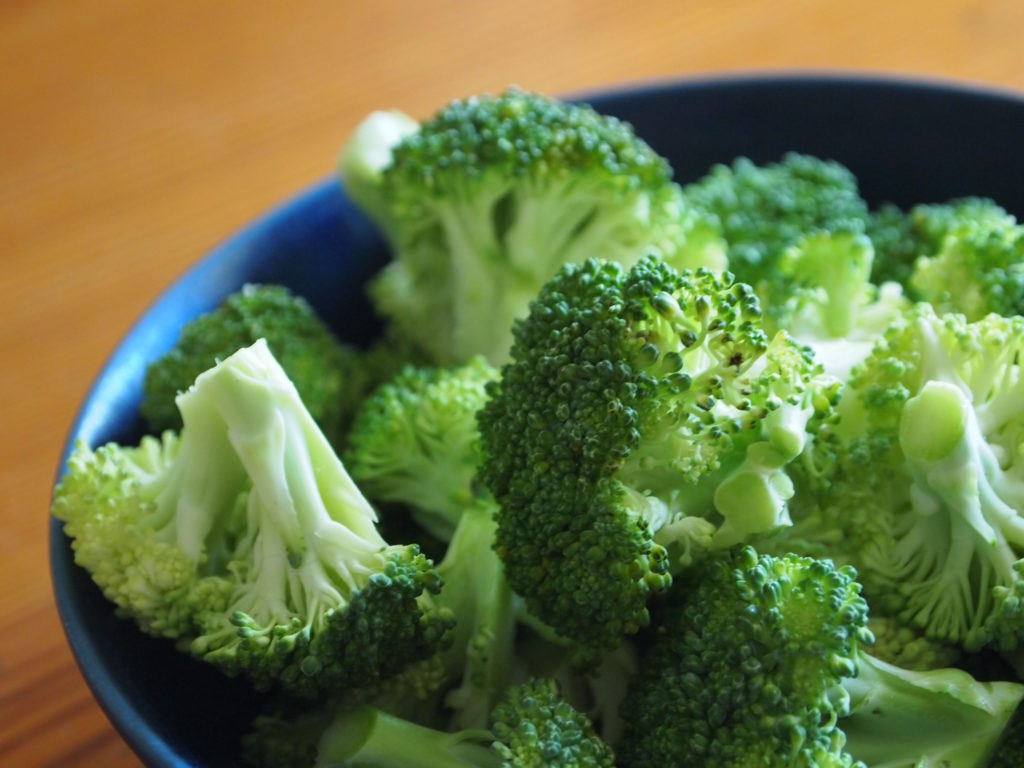
2. Brussels Sprouts & Broccoli
The darker the better when it comes to Vitamin C! Dark, leafy green vegetables like broccoli, kale and brussels sprouts are loaded with vitamin C.
One cup of broccoli alone, gives you 135% of your daily vitamin c essentials at 132mg, plus they’re loaded with fiber and low calories per serving. Research also shows broccoli may have cancer-preventing properties.
Brussel sprouts are loaded with cancer-preventing phytonutrients and fiber, as well as 74.8 mg of vitamin C.
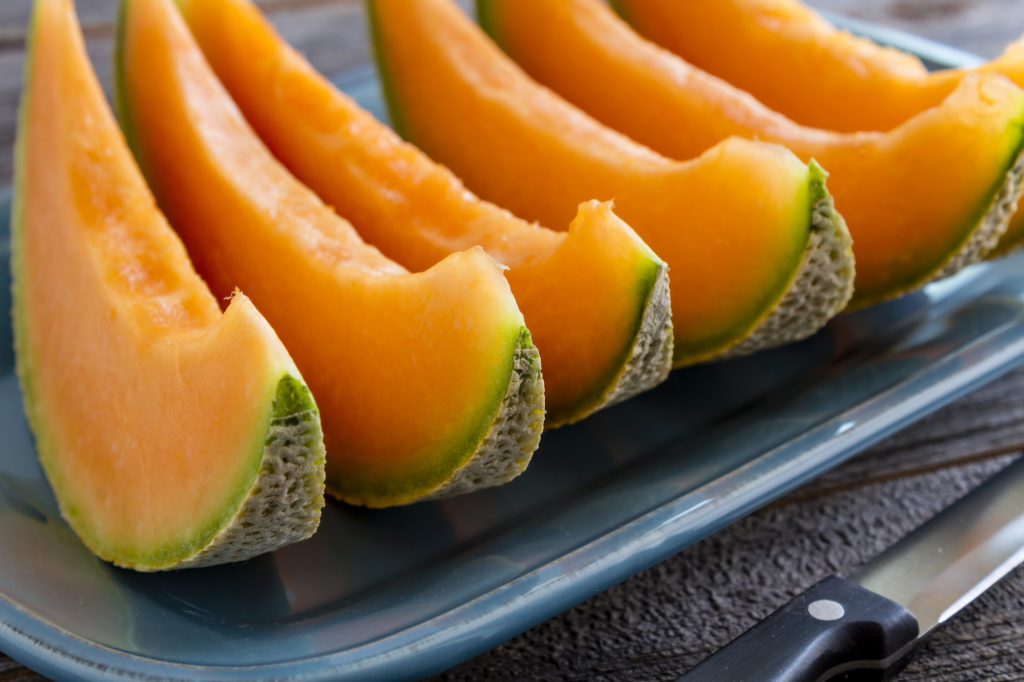
3. Cantaloupe
According to the USDA, 1 cup of cubed or balled cantaloupe contains 100% of the recommended daily value of vitamin C.
When it comes to beta carotene, cantaloupe knocks other yellow-orange fruits out of the park. According to the United States Department of Agriculture (USDA), cantaloupe has more beta carotene than apricots, grapefruit, oranges, peaches, tangerines, nectarines, and mangoes. One study determined that orange-flesh melons like cantaloupe have the same amount of beta carotene as carrots.
Beta carotene is a type of carotenoid. Carotenoids are pigments that give fruits and vegetables their bright colors. Once eaten, beta carotene is either converted into vitamin A or acts as a powerful antioxidant to help fight free radicals that attack cells in your body.
4. Cauliflower
If you’re sticking to low carbs, cauliflowers is a great option for your diet and getting in your daily Vitamin C. Plus, cauliflower takes just as good raw as it does cooked, so you don’t loose out on some of your vitamin c potency.
Cauliflower can be eaten raw, roasted, steamed, or mashed for 127.7 mg of Vitamin C, plus 5 grams of fiber and 5 grams of protein too.
5. Cherries
Cherries are anti-inflammatory antioxidants and packed with Vitamin C, which is essential for adequate collagen production.
6. Chili Peppers
A half-cup of chopped chili peppers packs a whopping 107.8 mg of vitamin C (compared to the 69.7 mg that a medium orange provides.) Researchers from the University of Buffalo found that capsaicin, the part that makes chili peppers hot, can help to relieve joint and muscle pain.
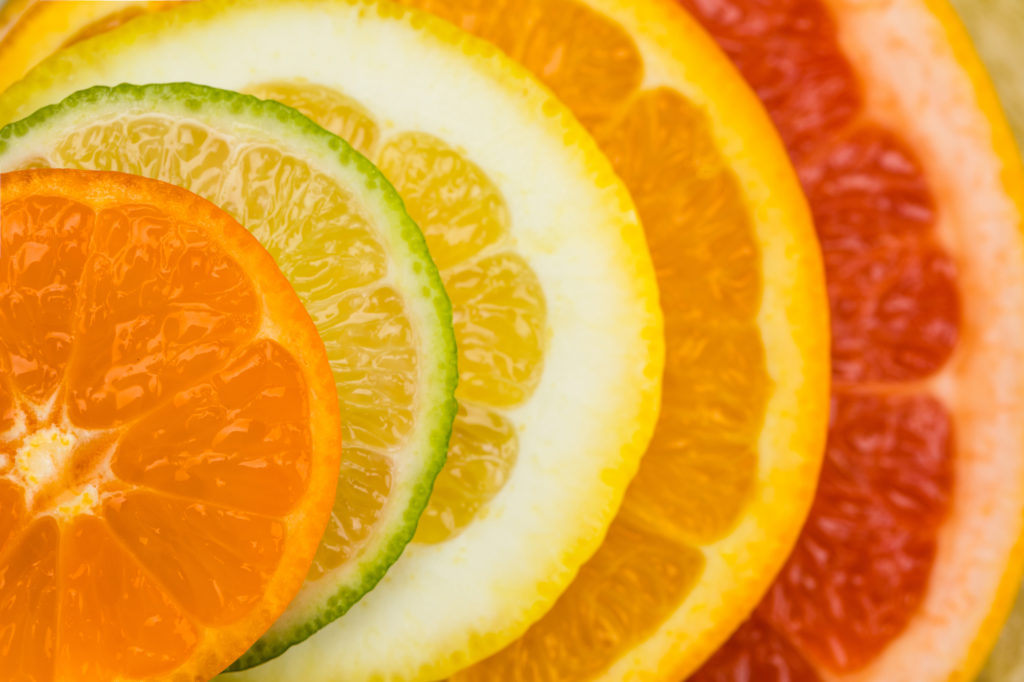
7. Citrus Fruits
When you think of Vitamin C, the first thing that usually comes to mind are oranges. It’s true, citrus fruits are loaded with antioxidants and known to be Vitamin C powerhouses, but don’t forget all the citrus fruits you can mix into your diet including oranges, grapefruits, pineapple, cantaloupe, and lemons.
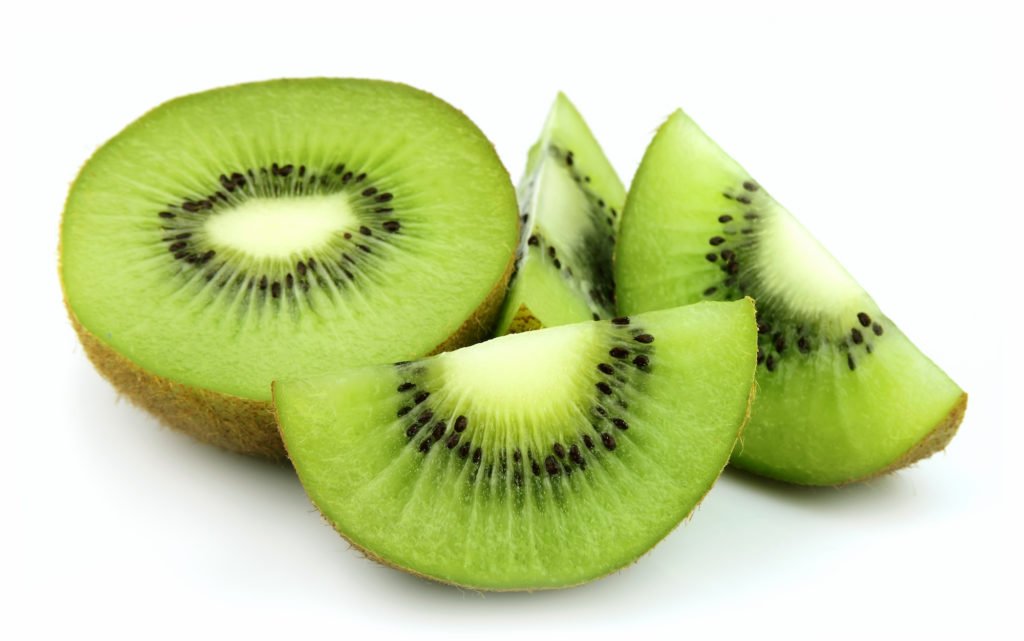
8. Kiwi Fruit
Two full pieces of kiwi (which is considering one serving) is loaded with 137.2 mg of vitamin C – twice the amount of a medium size orange! This soft and fuzzy fruit is rich in potassium and copper.
9. Leafy Greens
A single serving (one cup) of kale provides 80.4 mg of Vitamin C. It’s also loaded with a big doses of minerals and fatty acids. One cup of kale is loaded with twice your daily recommended serving of Vitamin A and seven times the daily serving of Vitamin K.
Reach for those leafy greens including kale, spinach, cabbage and turnip greens. It’s always best to eat them raw, but they can be roasted, and cooked as well.
10. Mango
Mango has a sweet, tropical taste that can be eaten raw, made into salsa, grilled and added to smoothies for take-me-away to the beach play on your taste buds. It’s also packed with 122.3 mg boost of vitamin C.
Mango is also a great source of vitamin A, which as we know, plays a big role in boosting immunity and promoting healthy eyes.
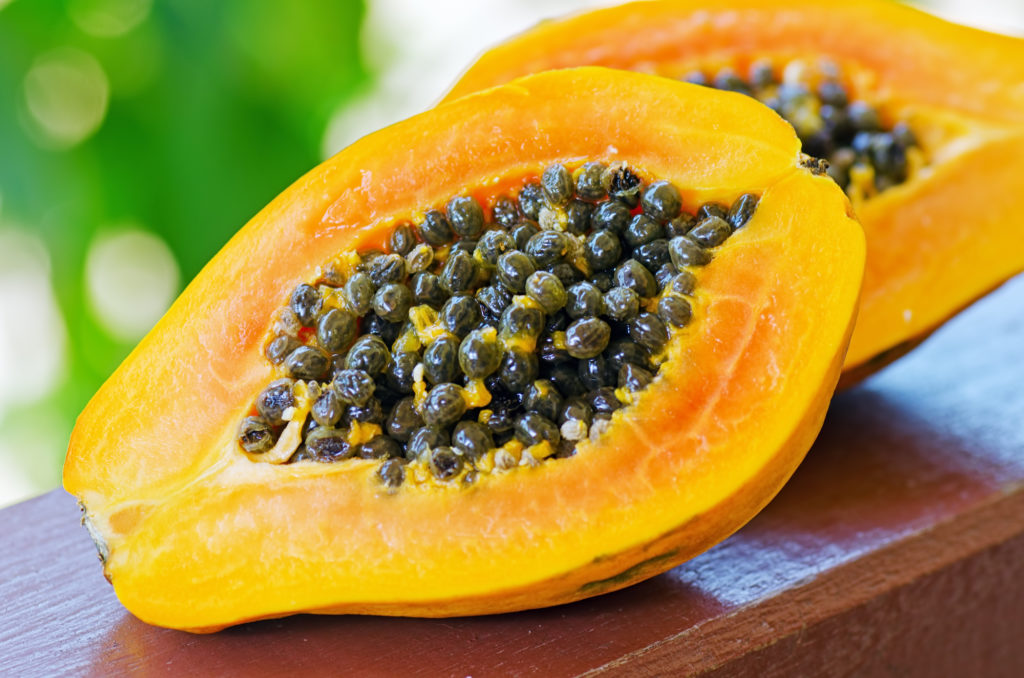
11. Papaya
Papaya is a natural wonder-fruit! It’s a leading source of Vitamin C (providing 224% of your daily value in one medium sized fruit), and studies shows that eating papaya can help clear sinuses, brighten your skin, and strengthen your bones.
One cup of cubed papaya has 88.3 mg of vitamin C.
12. Pineapple
Pineapple is loaded with 78.9 mg of Vitamin C (more than your average medium sized orange!), as well as bromelain, a digestive enzyme that helps break down food and reduce bloating.
It’s a natural anti-inflammatory to help you recover faster after a hard workout. Eat it raw, grill it, or add it to a smoothie for all the health benefits it provides.
 13. Strawberries
13. Strawberries
One cup of this sliced super fruit contains 84.7 mg of Vitamin C, and since you rarely cook them, but rather pop them straight into your mouth after washing, you get the full benefits of all the Vitamin C.
Strawberries give you a healthy dose of folate which is good for heart health, and the seeds of strawberries, have been shown to naturally whiten your teeth.
Raspberries, blueberries, and cranberries are not far behind strawberries with their Vitamin C and antioxidant powers.
14. Watermelon
Watermelon is one of my favorite sources of vitamin C, especially in the hot summer. It’s loaded with vitamin C, vitamin A, B6, magnesium, potassium and also contains citrulline, which is an amino acid that may increase nitric oxide levels in the body. Nitric oxide helps your blood vessels expand, which lowers blood pressure
While it’s convenient to shop for seedless watermelon, these have undergone a sterile hybrid process to remove the seeds. Seedless watermelons are in fact the result of a synthetic chemically induced mutant tetraploid that produces an sterile melon–yet are often sold as “organic.”
Shop for watermelons with seeds – the seeds are completely harmless to eat – and spend a moment spitting them out if you don’t like them, to get the full, unprocessed vitamin and mineral benefits.
To Recap Vitamin C-Rich Foods for Good Health:
Here are the fruits with the highest sources ofVitamin C:
- Cantaloupe
- Cherries
- Citrus fruits and juices, such as orange and grapefruit
- Kiwi fruit
- Mango
- Papaya
- Pineapple
- Strawberries, raspberries, blueberries, and cranberries
- Watermelon
Here are the vegetables with the highest sources of Vitamin C:
- Broccoli, Brussels sprouts, and cauliflower
- Chili pepers
- Green and red bell peppers
- Spinach, cabbage, turnip greens, and other leafy greens
- Sweet and white potatoes
- Winter squash